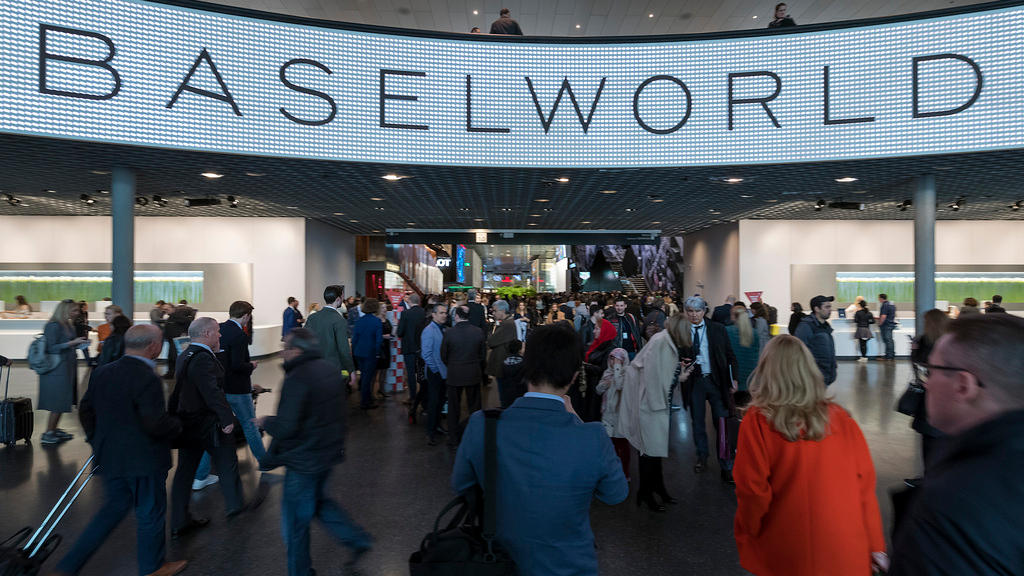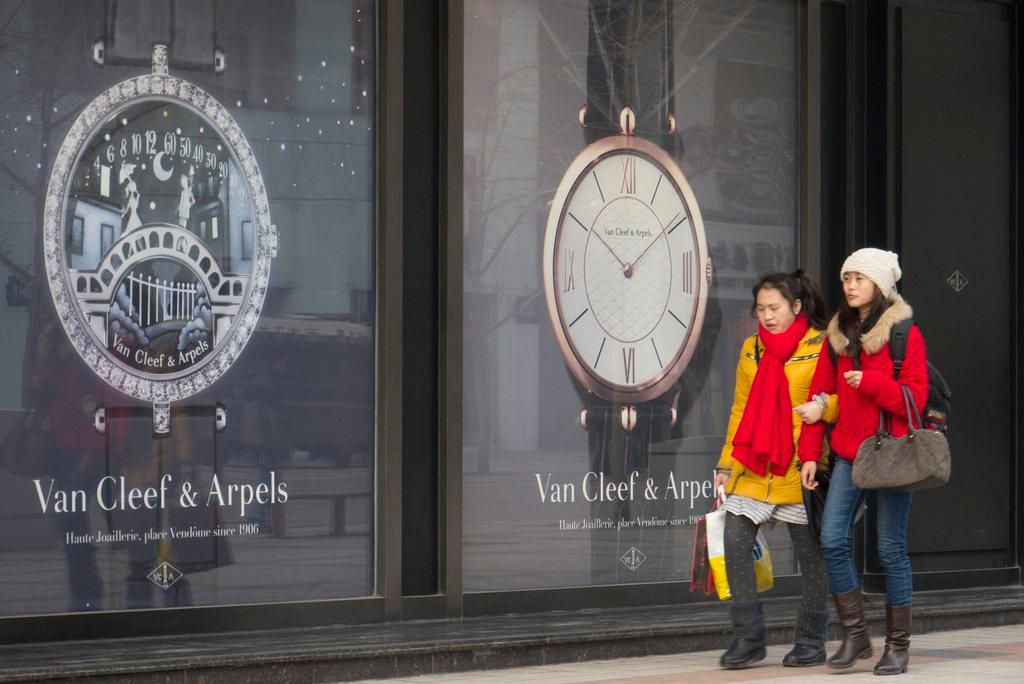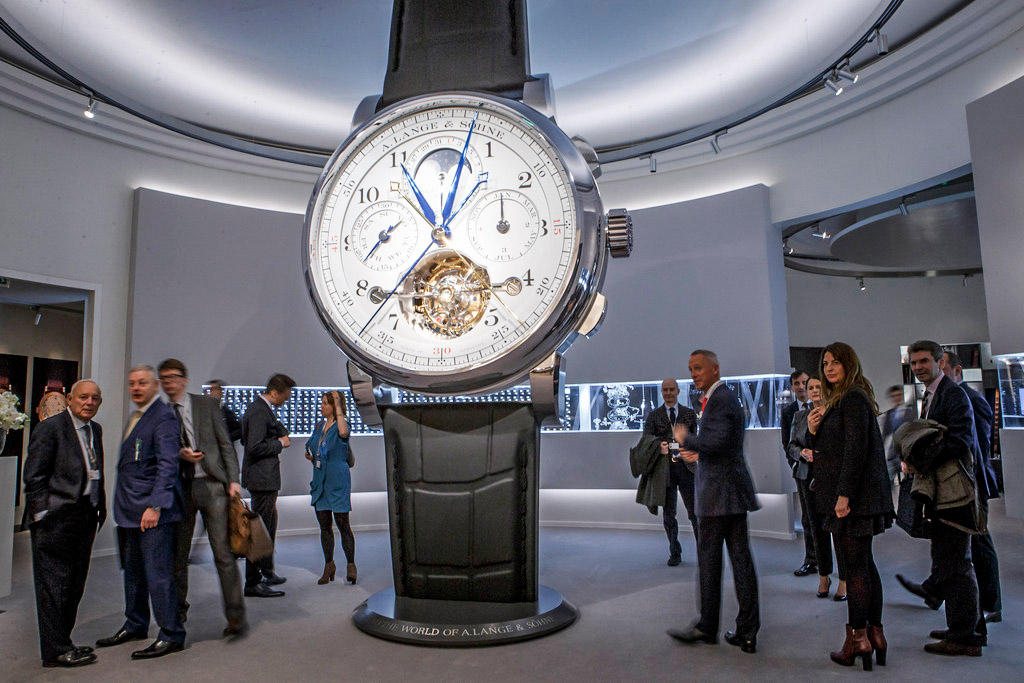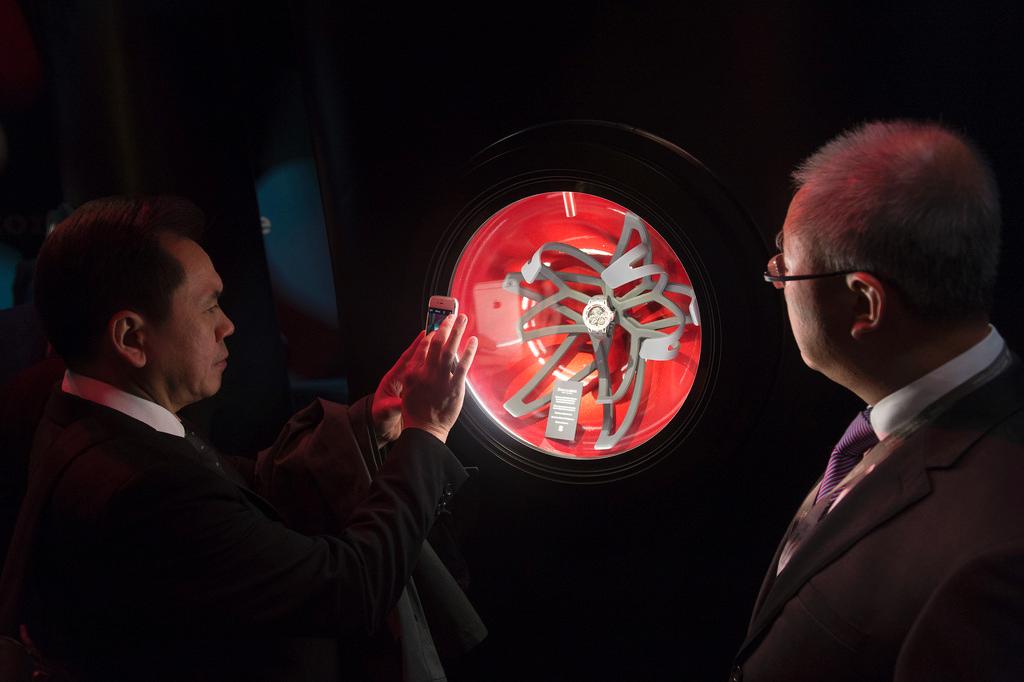SIHH sharpens contrast with Baselworld in battle of the watch fairs

When Fabienne Lupo, who runs the Salon International de la Haute Horlogerie watch fair in Geneva, says its ambition is “to become a kind of Davos of watchmaking”, this is not just an airy ambition of hers.
By comparing SIHHExternal link, which opened this week, to the World Economic ForumExternal link at Davos, with its political and corporate heavyweight guests and policy-setting discussions, Lupo is continuing the polarisation between her more exclusive fair and BaselworldExternal link, the commercial engine of the watch world.

More
Financial Times
External linkPart of this ambition is about SIHH’s exhibitors, which already include Cartier and Jaeger-LeCoultre. (SIHH started as luxury group Richemont’s riposte to Basel.) The exhibitors have become more prestigious this year with the defection of high-end maison Hermès from Baselworld.
In 2017, Ulysse Nardin moved to SIHH after almost 35 years, and chief executive Patrick Pruniaux is confident the shift was good: “I really like the fact that the audience is more select . . . SIHH gives a greater focus on content and on high-level watchmaking.”
Another means of distinction is trying to engage attendees more: SIHH has introduced a 100-seat auditorium for presentations and live debate and a network of plug-and-play mobile studios to allow “influencers, opinion leaders and other digital media” to communicate with their followers live from the show.
Lupo’s fair is much smaller than Baselworld: SIHH has 35 exhibitors across 30,000 sq m and attracts 20,000 visitors, while Baselworld’s 2,000 stands in several gigantic halls lure more than 100,000 people.

More
Baselworld exhibitors set to halve
That is why SIHH emphasises luxury, Lupo says: “I am not so arrogant as to say SIHH is a better event than Baselworld, but it has always been regarded as exclusive . . . We are not like Baselworld inasmuch as we are not just show organisers offering spaces – our mission with the FHH [the Fondation de la Haute Horlogerie which organises SIHH] is completely different – it is to answer the needs of the brands, not to make money by selling square metres.” (Lupo is president of the FHH thus is in charge of SIHH.)
‘Chalk and cheese’
Retailers reinforce this division. Kyron Keogh, co-founder of Rox jewellers, which has four stores in Scotland and two in the north of England, regards SIHH and Baselworld as being like “chalk and cheese”: “Essentially, I look forward to attending SIHH, but I dread going to Baselworld. SIHH is well-organised, [the retailers] are well looked after and there is a calm atmosphere. In contrast, Baselworld is full-on due to its sheer size, the number of people attending and the fact that appointment slots with the brands are far shorter and more rushed.
“Having said that, Baselworld has an energy and pace that you just don’t feel at SIHH and, in the 15 years that I have been attending the two, I have seen much more innovation and many more memorable watches in Basel than I have in Geneva.”
Charlie Pragnell, managing director of jeweller George Pragnell, which has stores in Stratford-upon-Avon and London, concurs. “It is undoubtedly more enjoyable to visit SIHH than Baselworld but, from a business perspective, Baselworld is clearly the powerhouse because it includes brands such as Rolex, Patek Philippe and . . . the Swatch Group.”
Public day
In one way, however, Lupo finds herself moving away from a Davos-like model. Whereas access to the WEF is tightly limited, in 2017 SIHH introduced a public day to what was previously an industry-only event.
Held on Friday, the last day of the show, it attracted 2,500 people who each paid CHF70 ($72). If the idea proves as successful this year, it may be extended to two days for future shows. (Baselworld is open to the public on every day; attendance fell last year by 4% to 106,000.)
Ulysse Nardin’s Pruniaux says he is “especially pleased with the inclusion of a public day” so fans can “make proper contact with the brand”.
Baselworld remains bullish, despite the loss of a few prominent brands and several less well-known ones. Marketing director Loraine Stantzos says: “Taking market share as a unit of measure, no significant exhibitors are missing at Baselworld 2018. The Swiss watch brands exhibiting at Baselworld account for the vast majority of Swiss watch exports both in terms of value and volume.”
Her fair is also trying to innovate with technology. In January, it announced it would introduce an “intelligent chatbot” to send live news about brands or even particular gemstones through apps such as WeChat and Facebook Messenger.
Copyright The Financial Times Limited 2018

In compliance with the JTI standards
More: SWI swissinfo.ch certified by the Journalism Trust Initiative












You can find an overview of ongoing debates with our journalists here . Please join us!
If you want to start a conversation about a topic raised in this article or want to report factual errors, email us at english@swissinfo.ch.